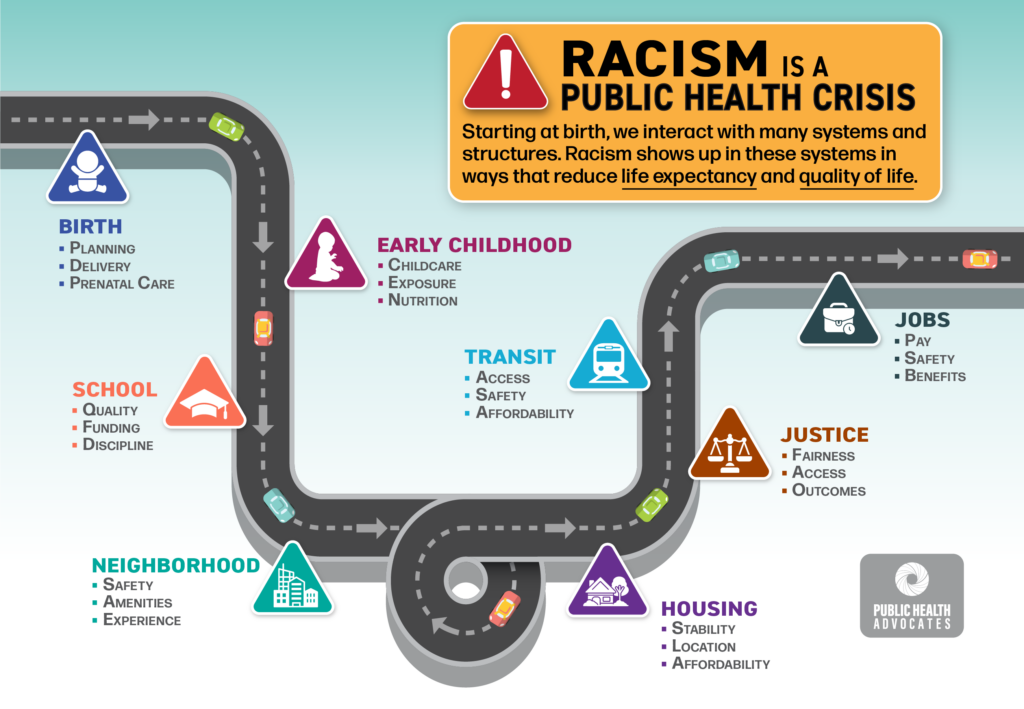
In the United States, 263 different government entities, including 38 in California, have declared that racism is a public health crisis. The government entities making these declarations include city councils, county boards of supervisors, state legislatures, public health departments, school boards, and more. At Public Health Advocates, we advocate for addressing this crisis at many different levels of government in California and beyond. We use our voice to push elected officials to move beyond declarations into action.
What do we mean when we say racism is a public health crisis? We mean that racism shows up in the systems and structures that we all interact with throughout our lives, leading to reduced life expectancy and lower quality of life. Very often, racism shows up not as overtly racist behaviors but rather as policies and norms that prevent historically disinvested and oppressed communities from accessing opportunities to advance and thrive. This is structural racism. Black, Indigenous, and People of Color (BIPOC)—especially those lacking financial means—are most harmed by its effects.
Some of the systems and structures we all interact with include early childhood development, neighborhoods, schools, housing, transit, and jobs. In early childhood, some families can pay for childcare and give their kids experiences that support their development; others cannot. Some kids attend well-funded schools offering high-quality education; others do not. Even within a school, kids of color often face harsher punishments for similar behaviors.
As we follow life’s paths, BIPOC individuals continue to have different experiences when interacting with systems and structures. When a new threat like COVID-19 arises, those people already facing the greatest challenges are hit harder than others. They have fewer resources and savings to protect themselves. They are more likely to be “essential workers” who must interact with the public and are more likely to live in a crowded home, increasing their risk of contracting COVID. When they get sick, they may have reduced access to the health care they need. They are more likely to lose a loved one.
The infographic above shows some of the systems and structures we face on our life path. To improve outcomes, we must transform our systems to make them accessible to and effective for all.
At Public Health Advocates, we address structural racism through a number of policy campaigns. We empower residents to advocate for policies that reduce childhood trauma. We build support for more equitable alternatives to traditional 9-1-1 emergency response systems. We help economically disinvested communities live healthier lives and increase their resistance to climate change. We build resilience against future emergencies, so that disinvested communities will no longer bear the brunt of the next pandemic or natural disaster.
That’s just a glimpse of the work we’re doing. But this work is much bigger than Public Health Advocates or any one organization. We want to know how the 38 government entities in California that declared racism a public health crisis—a list we hope to see grow—are following up their declarations with action.
Do you live in a city or county that has declared racism a public health crisis? If you’re not sure, visit the American Public Health Association’s webpage dedicated to racism declarations, click on your state, and scroll to see if your city or county has made this declaration. If you do, has your jurisdiction taken meaningful action supporting their declaration?
Sign up for our email list to join us in this conversation. Together, we can track what is being done across California and demand meaningful action from our elected officials.
